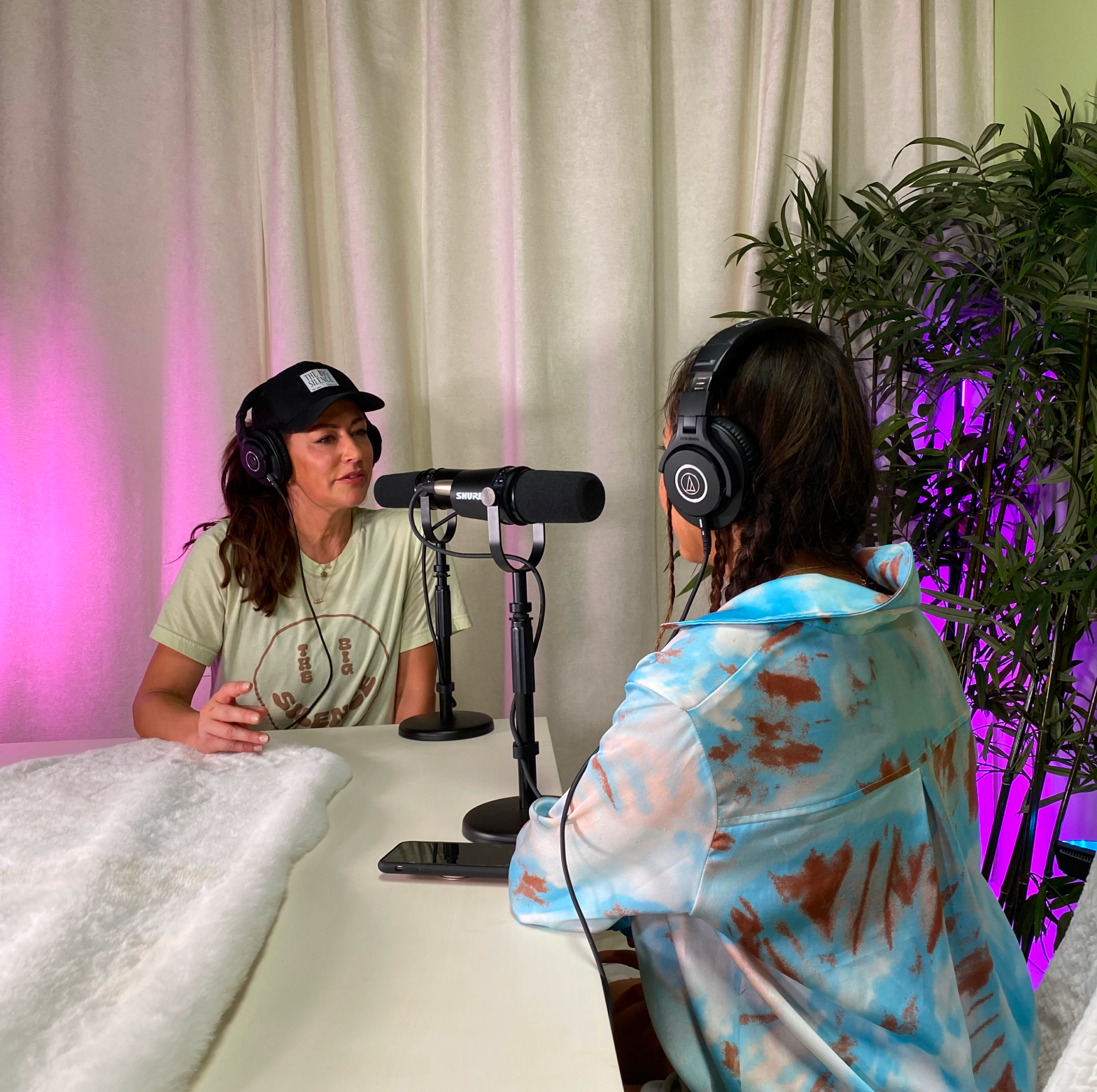
Cultivating a gratitude mindset: A simple but powerful tool to improve your health
How to create a gratitude practice and focus on the positive for better mental health
There are many ways to practice gratitude, such as keeping a gratitude journal, writing thank-you notes, or simply taking time each day to reflect on the things you're grateful for. Practicing gratitude regularly can help you develop a more positive outlook on life and appreciate the good things you have. Gratitude can help improve your mental health by reducing stress, anxiety, and depression.
Today on Big Feels, James and I explore how to create a gratitude practice that can help you focus on the positive and improve your mental health. We'll provide tips for getting started, ideas for when to practice gratitude, and include some of the benefits you can expect to gain by making room for gratitude in your daily routine.
How do I start my Gratitude Practice?
Making gratitude a habit by incorporating it into your daily routine will help you develop and sustain a gratitude mindset that helps to improve your health. It only takes a few minutes a day, but try to be consistent with your gratitude practice in order to reap the benefits over time.
Ideas for when to practice gratitude:
- In the morning when you wake up
- Before you go to bed at night
- When you're feeling stressed or anxious
- When you're feeling happy or grateful
- When you're eating a meal
- When you're taking a walk in nature
- When you're spending time with loved ones
- When you're reflecting on your day
How can a gratitude mindset transform my life?
Life is not black and white, it is a journey of self-discovery. Gratitude is like a map that points you in the direction of what matters to you most. On my podcast, Mary Lawless Lee shares about how her life transformed as she practiced a gratitude journal daily. Her daily practice led to new ideas and revelations that added depth to the meaningfulness of life's experiences.
Journaling Prompts to Get You Going! From Mary Lawless Lee
Mary describes her path back to writing, how the practice serves as a meditation in her daily routine, and a tool for self-discovery. She recommends these prompts as a place to start. Need a journal?
- When was the last time you trusted yourself?
- What made you laugh today?
- Whom do you miss?
- Where do you feel the most at peace?
- What do you need to feel safe today?
- When do you feel the most beautiful?
- Whom can you forgive?
- Why are you proud of yourself?
Journaling is a meditation practice in itself, and there are a number of ways to journal for the benefit of your mental health. But, journaling isn’t the only way to create a routine centered on gratitude. You can create a moment of gratitude at any time during your day to help calm and center yourself and focus your thoughts for a more positive mindset.
The practice of gratitude is transformational, and one that can lead you towards your most authentic self. It's never too late to find your center and follow your heart.
The Benefits of a Gratitude Mindset
Making a gratitude practice a regular part of your daily routine has so many positive benefits for your mental health and your health overall. Here are just a few examples:
- Shifts our focus to more positive aspects: Negative thoughts can have a mind of their own. It's important to know how to manage and overcome negative thinking, and practicing gratitude is a tool that can help. Gratitude can counteract the brain's natural tendency to dwell on negative thoughts and events. This shift in focus can lead to a more optimistic outlook and reduce the impact of negative emotions.
- Enhances Mood and Emotional Well-being: Regularly expressing gratitude can lead to the release of neurotransmitters such as dopamine and serotonin.
- Reduces Stress and Anxiety: Gratitude can help to relieve anxiety and lead to a calm and more relaxed mind.
- Improves Relationships: Letting someone know you are grateful for them can benefit your relationships by improving the sense of connection.
- Promotes a Sense of Purpose and Meaning: Reflecting on what you are grateful for can provide a sense of purpose and meaning in life. This can be really helpful in times of struggle, when you need an extra boost of hope.
-
Encourages Mindfulness: Gratitude is an excellent mindfulness practice!
Mindfulness has been shown to reduce symptoms of depression and anxiety by preventing rumination and promoting acceptance.
- Enhances Resilience: By focusing on positive aspects and maintaining a grateful attitude, you can build resilience against stress and adversity. Resilience is the power that helps us cope more effectively with challenges and setbacks.
- Improves Sleep: You can rest better and prevent insomnia by practicing gratitude before sleep.
Taking just a couple of minutes a day, your gratitude mindset can serve as a powerful tool for enhancing mental health by fostering positive emotions, reducing stress, improving relationships, and promoting a balanced and hopeful perspective on life.
Start a conversation: Shop our new collection of Summer Tees and Support the Movement!
Shop to support mental health! 100% of the proceeds fund mental health resources and initiatives.
BIG FEELS FEEDBACK
How are you really feeling? We'd love to hear about your week, or share your favorite tools for the week in the comments!
|
The Big Silence Foundation, Inc is a U.S. tax-exempt 501(c)(3) organization dedicated to changing the culture of mental health. Consistent with IRS guidelines, all gifts are tax-deductible to the extent allowable by law. Donate to bring change with us!.
|
Start a conversation in your The Big Silence apparel.
The information provided is for educational purposes only, and does not substitute for professional medical advice. Users are advised to consult a medical professional or healthcare provider if they're seeking medical advice, diagnoses, or treatment.
**Please note that if your thoughts start becoming hopeless or suicidal, contact emergency at 988 or 911 andcrisis services immediately. You can find more resourceshere. Text HELLO to 741741 to be connected with a trained crisis counselor.










